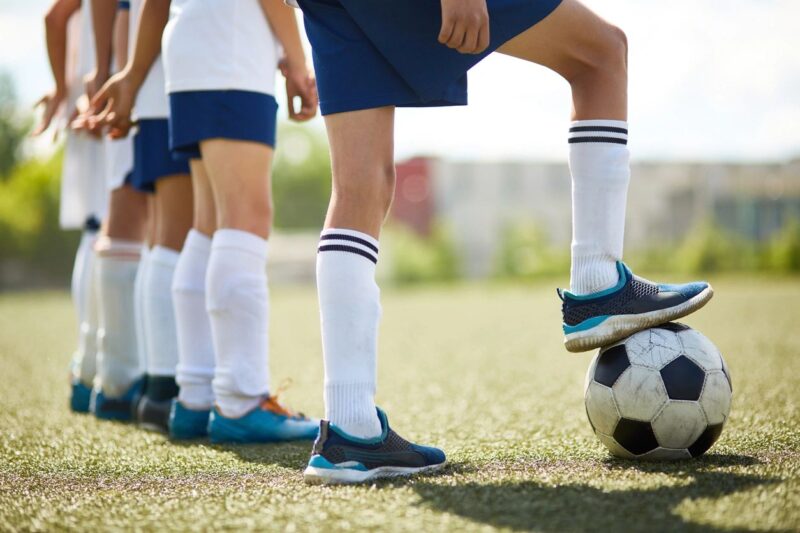When training a sport professionally or working out for a good physique, we’re often bombarded with information about all kinds of supplements. Every company out there is promising better results, recovery, and incredible performance (only if you take X supplement). And as adults, we’re able to make the decision whether they’re good for us or whether they’re something we should probably skip. However, for teenage athletes, the situation is slightly different.

Typically, high school athletes need more and better nutrition than their peers. That means their bodies require more carbs, proteins, and other nutrients compared to the average teenager, who doesn’t participate in professional training. For this reason, a lot of teenage athletes turn to different supplements like whey protein, creatine, BCAAs, and others. But as you can probably guess by the name, the main idea of supplements is to supplement the diet and not replace real food.
Is Taking Supplements Necessary?
According to the Academy of Nutrition and Dietetics, young people that participate in sports should get anywhere from 10 to 30% of their daily caloric intake from protein. That’s around 52 grams of protein for boys and about 46 for girls. The reality is that most of them consume two to three times more than what’s recommended. If a young athlete has a good diet that contains sources of protein such as greek yogurt (for breakfast), chicken (for lunch), and some kind of fish for dinner, they will easily be able to hit their required daily protein intake, without having to take any supplement.
Along with protein, the other popular supplement often given to young athletes is creatine. It’s one of the most recommended supplements from sales reps in stores that sell such products, and a lot of the time, teenagers fall for this hype and assume that it’s a product they must absolutely take in their daily routine.
The reality is that creatine is one of the most researched supplements in the world, and the research clearly states that it’s both effective and safe for athletes of all agents. It can definitely aid recovery and enhance performance if used correctly. The problem with creatine and teenage athletes comes from the fact that most of them are misusing it due to the fact that they’re not getting the right advice as to how to implement it in their diets.
Other popular supplements that teenage athletes gravitate towards are pre-workouts and BCAAs. A pre-workout is generally a caffeine supplement that’s often enhanced with some form of branch-chained amino acids. Its main purpose is to provide the athlete with additional energy so that they can perform at their maximum during a particular workout. However, for young adults, the high amounts of caffeine that are contained in pre-workouts can often affect their sleep, especially if they take them during the late afternoon hours. With that said, if taken early in the morning or only on particular days when the athlete feels exhausted, pre-workouts are quite a useful supplement.
On the other hand, BCAAs are definitely a can-skip product that’s not necessary for teenage athletes. If you have a balanced, healthy diet that combines different protein sources (both from plants and from animals), then drinking BCAAs is absolutely unnecessary. What’s more, most protein powders and pre-workouts also contain some forms of BCAAs, making the separate supplement even more of a pure marketing trick.
Finally, supplements such as testosterone boosters are ones that actually pose risks for young athletes. Typically, around 19 or 20 is the peak age for testosterone levels, which then tend to decrease by around 1% every year after the age of 30. That essentially means teens are the group of people that produce the highest level of this hormone naturally and using any kind of supplements to boost it will only lead to a hormonal disbalance that should be avoided.
In Conclusion
Teenage athletes have fast-developing bodies and their own particular nutritional needs. And supplements are a great way to provide them with additional vitamins, minerals, and nutrients. Along with that, they’re put under more physical stress than their peers because of the daily training sessions that they have to go through. With that said, when it comes to young bodies, the two most vital pillars for proper recovery and growth remain good sleep and a great diet. Young athletes should aim to get a minimum of eight hours of sleep every night (maybe even nine on recovery days), and they should look to have an earlier bedtime (not past 11:00 pm). Combining that with a diet that’s rich in proteins, complex carbs, fruits, veggies, and healthy fats will be more than enough for a teenage athlete to not only recover well but also to build muscle and perform better on the field.


